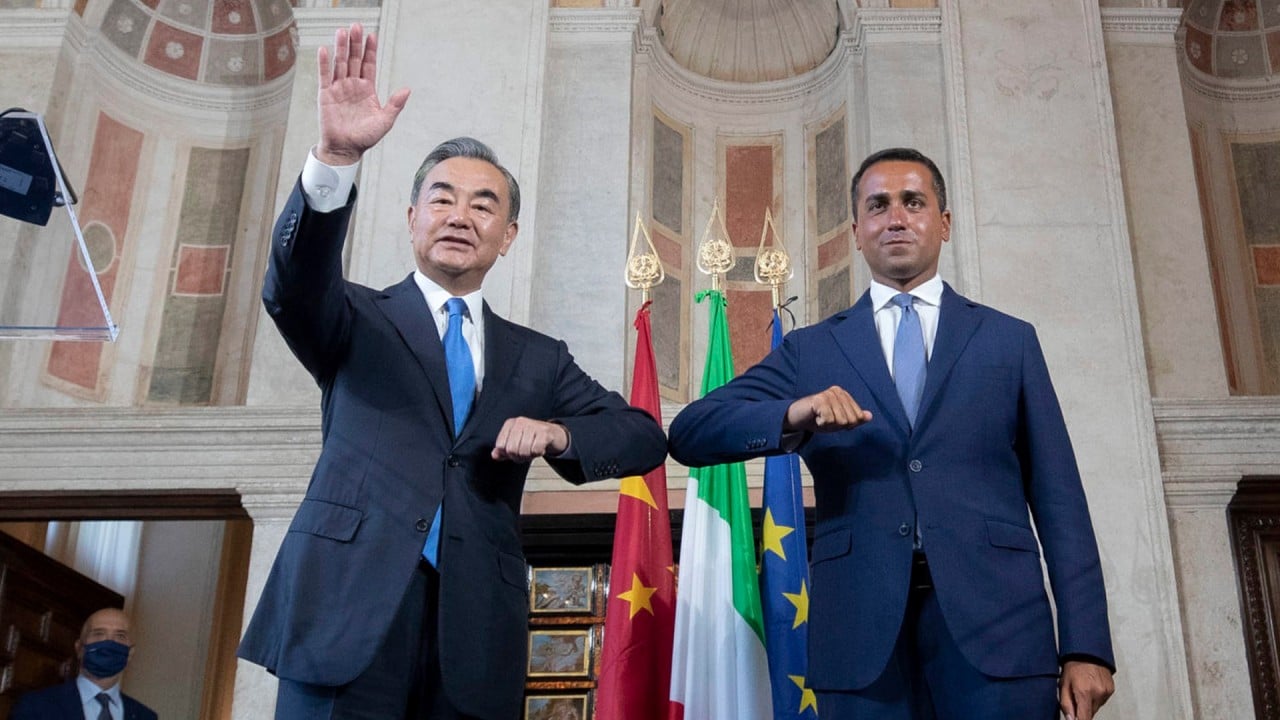
EU must correct China economic ties before it’s too late: Josep Borrell
- Borrell describes China as a new empire and says bloc must learn to speak the language of power
- Foreign policy chief accuses Beijing of undermining international norms
The remarks also come just a fortnight before Chinese President Xi Jinping is expected to attend a summit hosted by EU leaders and German Chancellor Angela Merkel.
“Russia, China and Turkey share three common characteristics: they are sovereignists on the outside and authoritarian on the inside,” Borrell said in an article in newspaper Le Journal de Dimanche. “After 30 years where the European vision seemed to gain ground, the sovereignist vision has regained the upper hand with these new empires.”

03:12
China’s foreign minister begins Europe tour to discuss US influence, Hong Kong issues and Huawei
But this is the first time the EU has officially referred to China as a “new empire”, a step further than the “systemic rival” it first used last year.
“Unlike the principle of sovereignty which is based on the popular will, sovereignty puts forward the sole sovereignty of the state, which is a completely different matter,” Borrell said.
“Some European countries have also been empires. Fortunately, they returned from this imperial temptation by creating Europe.
“But in order to be able to peacefully negotiate and settle conflicts [with] these new empires, built on values other than our own, we too must necessarily learn to speak what I have called the language of power.”
France will not ban Huawei but favours European 5G systems, Emmanuel Macron says
In another article in journal Politica Exterior, Borrell said there had been “a substantive change in the attitude of the current Chinese leaders” since the launch of Made in China 2025, the country’s plan to upgrade its hi-tech industries.
“The ‘China Dream’ proposed by President Xi would be the way to achieve this [Made in China 2025]. This ambition for leadership is the main difference from times past,” he said.
China has repeatedly sought to assure Europe about its peaceful rise and promoted itself as the EU’s partner for multilateralism. It has also dismissed the EU’s view of it as a rival.
But Borrell pointed to imbalances in the EU’s relationship with China, particularly the lack of market access for European businesses in China.
“Our relationship is excessively asymmetric for the current level of Chinese development. And that must be corrected,” he said. “If we don’t do it now, in a few years it will be too late. Chinese products will continue to move up the value chain and our economic and technological dependence will increase.”
He described China as “assertive”, “expansionist” and “authoritarian”, echoing US concerns over China while still stopping short of aligning with Washington.
“Gone is Chinese foreign policy inspired by Deng Xiaoping’s 1974 speech to the UN General Assembly, where he stated that ‘China is not a superpower, nor will it ever seek to be’,” Borrell said.
“[China’s] objective is the transformation of the international order towards a selective multilateral system with Chinese characteristics, in which economic and social rights are prioritised over political and civil rights.”
Why China’s diplomatic push may not be enough to secure EU investment deal
He criticised China for undermining international norms, including in the South China Sea; by promoting Chinese ideals as a “community of shared destiny”; and by holding high positions in the UN system.
He also drew attention to Chinese military development, a topic that is not discussed often in the EU.
“The arms sales embargo decreed against China since the Tiananmen events in 1989 is still in force, but China no longer depends on imports of military equipment,” he said. “It has developed an arms industry, especially naval and ballistics, of the first order and every year it increases its exports.
“Although the capabilities of the Chinese army are still far from those of the US, the distance is much closer than a few decades ago, and in some areas there are hardly any differences.
“Within a year, China will have four operational aircraft carriers.”

